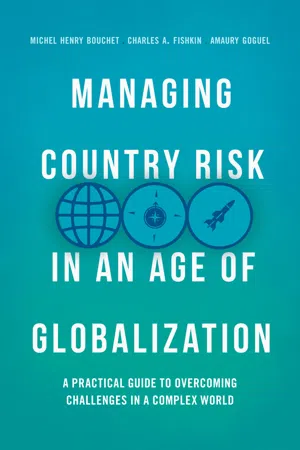1.2.1 A Multifaceted Concept
“Risk ” is a multifaceted concept. Risk is about the future—what may occur this afternoon, tomorrow, next year, or further out in time. It is about outcomes that are unknown. It is a consequence of every meaningful action undertaken by an organization. It occurs in strategy setting, new product creation, employee hiring, model design, and so much more. Risk can create substantial financial gain or loss. It can also enhance or damage an organization’s reputation.
The term “risk ” is often used synonymously with the term “uncertainty ,” although it has no universal definition. It has been used in different ways for different purposes.
The term has assumed multiple meanings in “everyday” conversation.
“I will take that risk .”
“This is a high risk strategy.”
“There are risks in proceeding.”
“I want to avoid this risk .”
“We may incur risk here.”
“We don’t want any risk .”
“We run the risk of something we did not anticipate.”
“The program is at risk .”
“We can manage the risk .”
We use this term, moreover, across the spectrum of business, government, and the non-profit sector—yet not always in a consistent manner. We work in departments of risk management staffed by risk analysts and led by chief risk officers . We engage in risk assessments, build risk models, and review risk statistics. We serve on risk committees , attend risk conferences, and read risk journals. We communicate with specialized terminology, referring to specific types of risk as—among others—credit risk , market risk , and operational risk . Yet, across this varied range of activity, we use multiple definitions, follow different policies, and engage in diverse practices relating to risk and risk management . We also encounter differences—some times significant—among organizations and working groups that have sought to promote common standards for risk management . (See Box 1.1, Definitions of Risk .)
So how can we improve our understanding risk and risk management ? How can we have more constructive discussions about these essential concepts? How, ultimately, can we make better decisions about the future?
1.2.2 Risk , Uncertainty , and Ambiguity
A useful way to begin is to understand the nature and degree of uncertainty we confront in any particular decision. We need to ask how confident we are about the basis for our decisions. We further need to ask how much we know about the probabilities for outcomes associated with our choices. To answer these questions, we need additional definitions and a more specific meaning for the word risk itself. At the outset, three new definitions are important: Uncertainty , Risk , and Ambiguity .1
They have their origins in the ideas of two influential economists (among others): John Maynard Keynes (1883–1946), the founder of modern macroeconomics,2 and Frank Knight (1885–1972), a leader of the Chicago School of Economics at the University of Chicago . (See Box 1.2, Frank Knight ’s Legacy: Risk , Uncertainty , and Ambiguity .) These definitions are not, of course, the only valid ones for these concepts, but they serve as a useful starting point for our inquiry into the nature of Country Risk .3
For our purposes then, we define these terms as follows.
“Uncertainty ” is an overarching term that refers to any condition where the particular outcome is not known (i.e., the set of potential outcomes may or may not be known). As we have observed, this term is often used synonymously with the term risk in “everyday” discourse, but we can refine our terminology if we think of risk as a subset of uncertainty .
“Risk ” is a special case of uncertainty where we know both the set of potential outcomes and the probability of such outcomes. This has also been referred to as “measurable risk ” or “Knightian” risk (in reference to Frank Knight ’s distinction between risk and uncertainty ). Another complementary definition is “a situation in which there are well defined, unique and generally accepted objective probabilities ” (Kelsey and Quiggin 1992, 134–135). (An often-used example of measurable risk is the “toss” of an evenly balanced coin. For each individual toss, there are only two unique outcomes, and for each such outcome there is a 50% probability that the coin will land on one side or the other side. One significant aspect of this definition of risk is the potential to insure against loses or negative outcomes. Familiar examples include individual insurance policies to cover health care, automobiles, homes, or a person’s life. In such cases, insurance providers take into account extensive historical experience about potential outcomes, including average behaviors and measurable deviations from the average.)
“Ambiguity ” is a special case of uncertainty where we know the set of potential outcomes but do not know the probability of such outcomes.4 A complementary definition is “uncertainty about probability, created by missing information that is relevant and could be known ” (Camerer and Weber 1992, 330).
Another subset of uncertainty refers to the case where we do not even know the nature and extent of the possible outcomes. This is sometimes called Knightian uncertainty in reference to Frank Knight ’s framework. Another name for this, formulated by the economist David Dequech , is “fundamental uncertainty .” This form of uncertainty can arise from a complex interplay of factors, including innovation and technological change as well as changes in cultural, social, and political conditions. Dequech writes: “The future...
